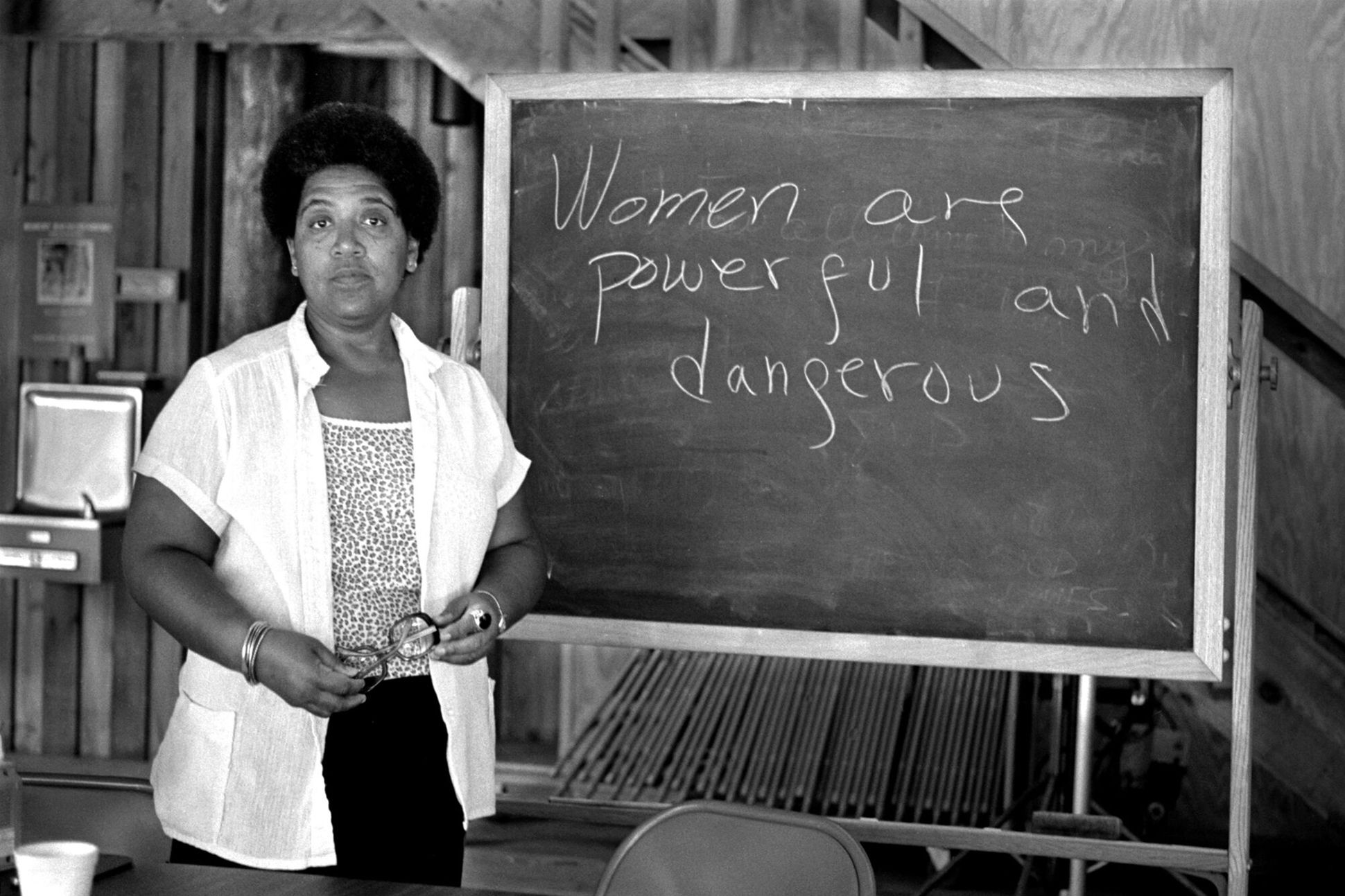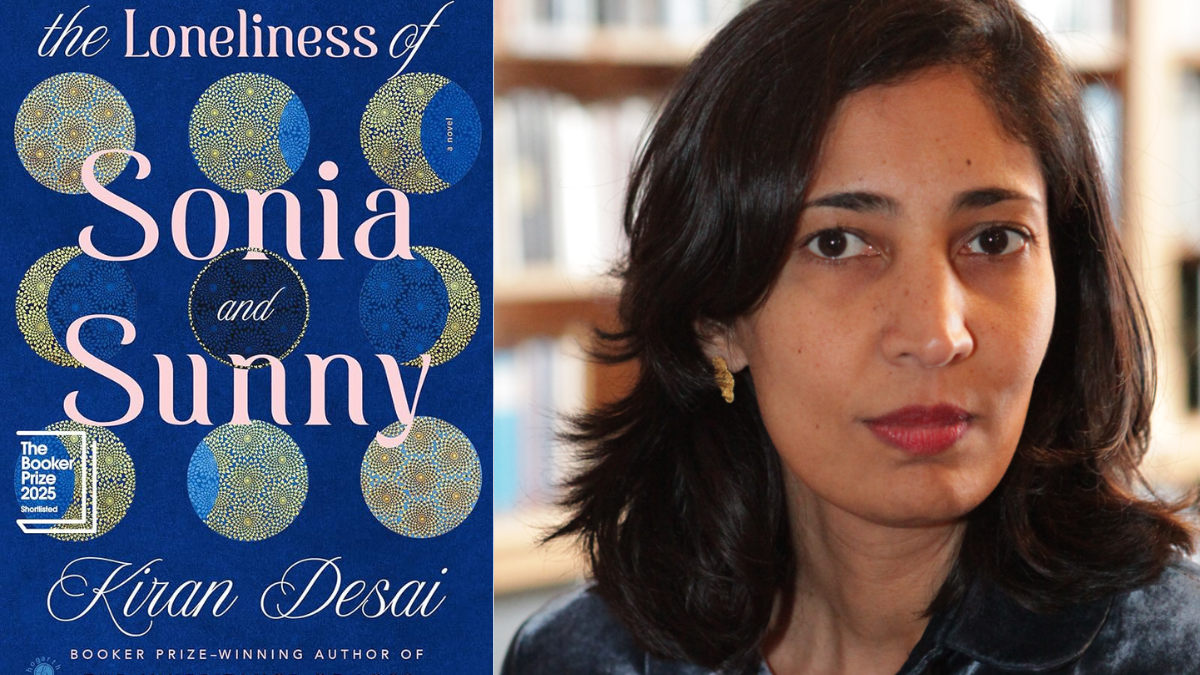Yashika Singla’s My Subconsciously Feminist Father is a personal narrative that takes the readers through a series of events that shaped the author’s perspective on feminism and being a feminist. As Yashika embarks on her story she takes her readers through a journey, by giving them a little anecdote of her life as well as her take on feminism. As a reader, one of the first things that strike me is how feminist one’s family has been. In my opinion, her purpose in writing this book was not to tell a story but to understand the depths of how even the smallest of things can have a big impact on one’s perception. In this case the discourse of feminism.
Yashika’s book is not just about her upbringing or her parents. The book is a collection of 10 chapters each consisting of an interesting and appealing title and a great story behind it. But what makes it more interesting is how every chapter has a different story that shifts the reader’s perspectives and makes them look into the debate of feminism from a different angle.
Throughout the book, Yashika tries to imagine a world where we can raise feminist families and, feminist fathers.
The book starts with her childhood where she explains how her family dynamics were different from others and how while growing up, her idea of family and the roles every member played was quite different. Born to a family of intellectuals and being raised by two working parents her world was quite different from her schoolmates. In a traditional middle-class family during her time, most of the women were housewives and those who were working were either teachers or part-time employees. Working in an office space or at home, all the important tasks like decision-making were always expected to be done by men, in other words, by fathers.
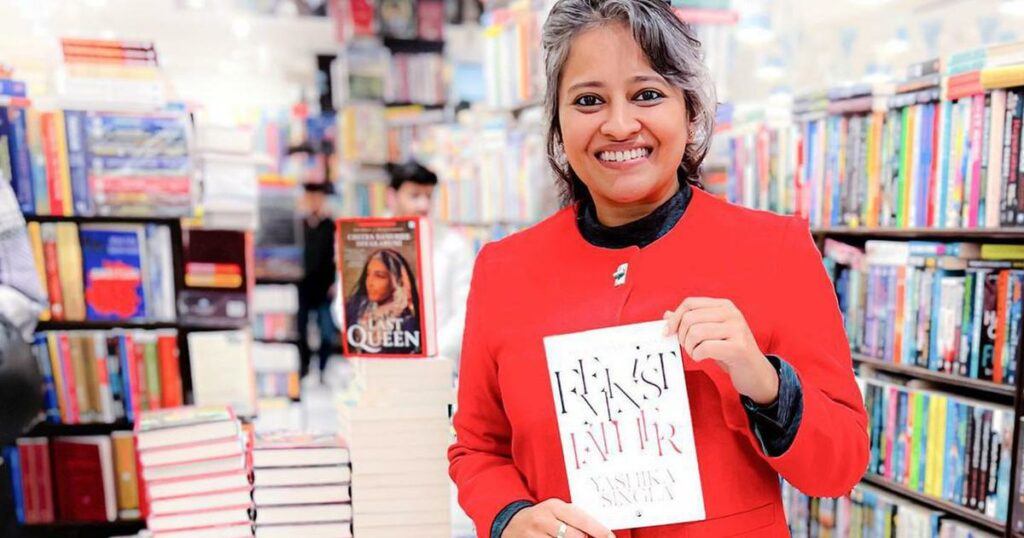
From having a father’s surname to having the father as the head of the family, it was a norm that fathers are the head of all authority. While mothers were always given the role of caretaker at home as well as in jobs. But with Yashika things were different and she credits her father as well as her mother for it. Through her book, Yashika talks about the importance of having a feminist father can really impact how women and men shape their ideology around feminism. She recalls that growing up, every kid imagines their life influenced by games and films but mostly through the roles, their parents play. Girls are always given dolls or asked to play “Ghar-Ghar” and boys are given masculine toys and expected to play all the action or running games.
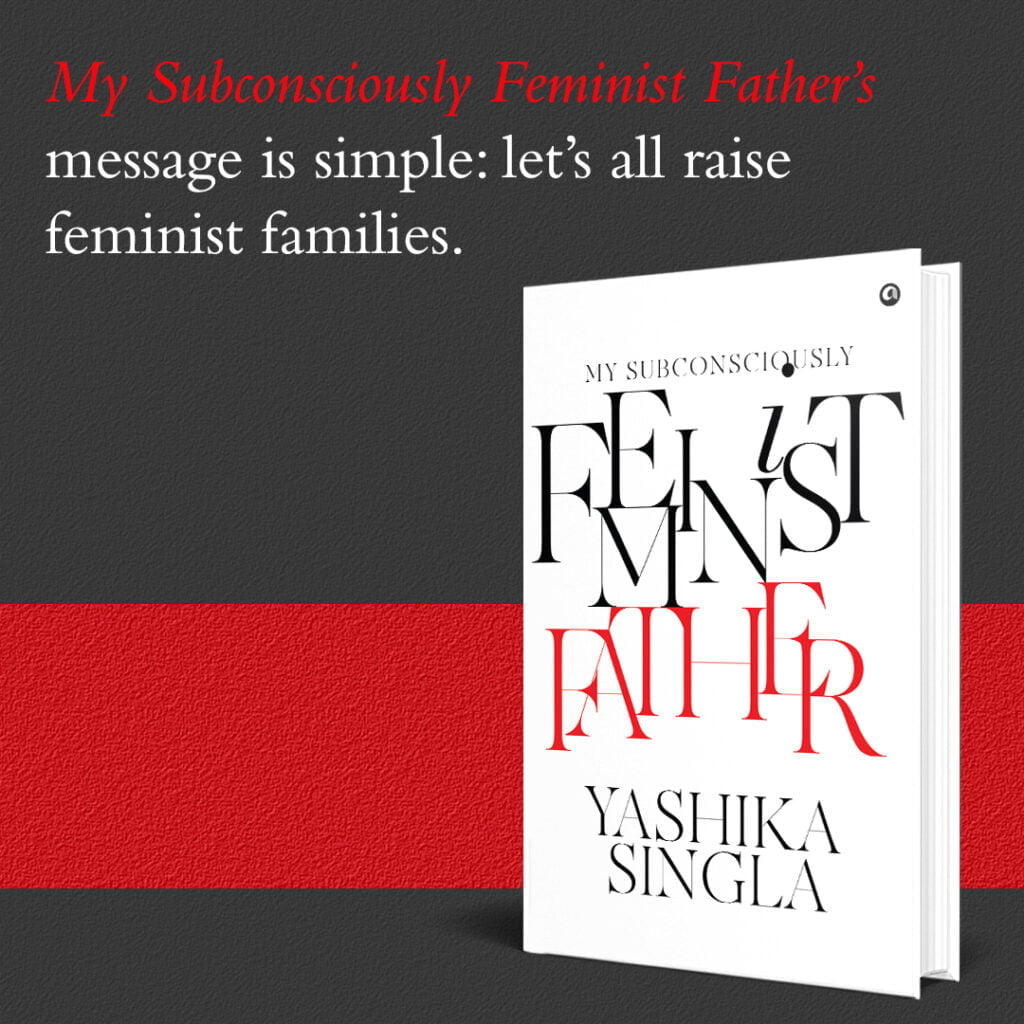
However, in her house, everything was different, from having working parents who treated each other as equals to her father who raised his son like his daughters, to being a feminist. Hence, the title of the book.
Also Read: Book Review: The Queen, The Courtesan, The Doctor, The Writer By Sabah Khan
What’s interesting is that Yashika calls her father subconsciously feminist, and here is why. Her reason behind calling her father this is because of the roles that her father is playing, one of being a feminist and the other of being a pretend patriarch. She remembers how she is almost always in this dilemma of how her father is a feminist but refuses to accept it. She uses a number of incidents within the book to conclude this. One of them is that her father is a bigger supporter of women leaders but not giving the same credit to his own wife. Her mother on the other hand is a light that holds all of them together. She is a feminist who raised her kids to be the decision-makers, she believed in being an equal co-parent and therefore always supported her partner’s decision for kids.
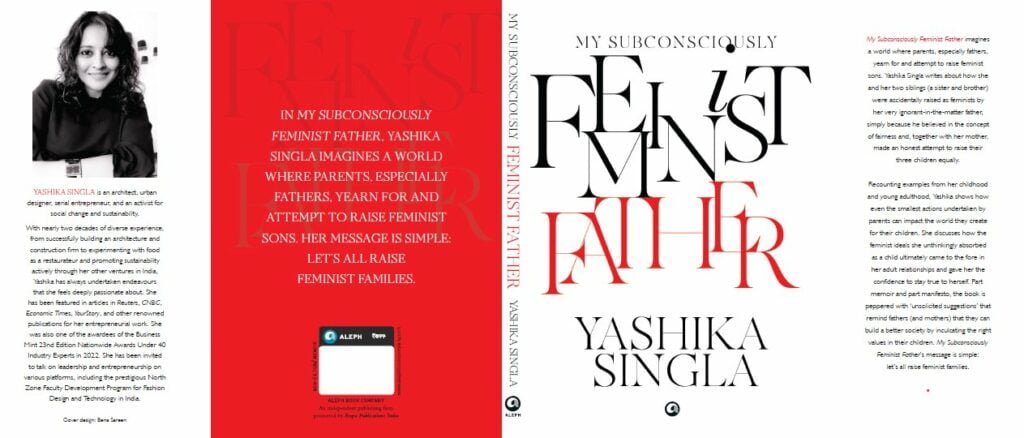
Yashika’s book is not just about her upbringing or her parents. The book is a collection of 10 chapters each consisting of an interesting and appealing title and a great story behind it. But what makes it more interesting is how every chapter has a different story that shifts the reader’s perspectives and makes them look into the debate of feminism from a different angle. Apart from this, one of the best things is how Yashika builds the narrative in a way that every generation and gender can understand and relate to it.
Therefore, through this book, she calls out to every family to practice feminism in their house, to raise feminist families. Overall, the book speaks volumes of how everything, person, character, and incident constantly shapes our ideas. She gives an example of this through her brother who was raised as a feminist son and now is a feminist father and husband to her daughter and his wife.
Also Read: Book Review: Abandon By Sangeeta Bandyopadhyay
She uses every possible detail and showcases how it connects to the deep-rooted issue of patriarchy. From talking about the number of toilets within an institution to talking about sexism in matriarchal societies, she brings up the issue of gender discrimination very clearly. But she does not blame men alone for this rather women too. She blames the educated not just in India but all over the world who use the means of casual sexism to bring women down. From politicians to the most learned professors, her experience with gender discrimination comes out very loudly in her book. But one thing that she thinks can help the goal of feminism is its acceptance and its practice.
Therefore, through this book, she calls out to every family to practice feminism in their house, to raise feminist families. Overall, the book speaks volumes of how everything, person, character, and incident constantly shapes our ideas. She gives an example of this through her brother who was raised as a feminist son and now is a feminist father and husband to her daughter and his wife. The only difference is that he is consciously feminist compared to her ex-husband who turned out to be a pretend feminist.
About the author(s)
Vedika is an intersectional feminist who uses cinema and everyday experiences to talk about issues rooted in the vernacular. She loves to bake and travel around the country to explore different cultures and write down people’s stories. Vedika hopes to get an opportunity to cover such stories around the world. She is also a romantic who loves to read poems, personal essays and won’t mind vibing to slow songs

